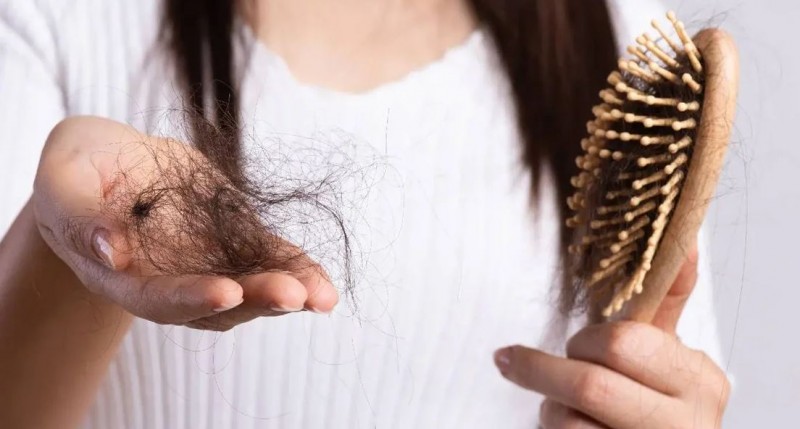
Hair fall is a common concern affecting many individuals today. While a certain amount of hair shedding is normal, excessive hair fall can be distressing and may indicate underlying issues such as nutritional deficiencies, hormonal imbalances, or scalp conditions. Addressing hair fall requires a holistic approach that includes both external care and internal nourishment through diet and lifestyle adjustments.
Understanding Hair Fall Causes
Before diving into solutions, it's essential to understand the potential causes of hair fall:
Nutritional Deficiencies: Lack of essential vitamins and minerals like vitamin D, iron, zinc, and proteins can weaken hair follicles, leading to increased hair fall.
Hormonal Changes: Imbalances in hormones, particularly during pregnancy, menopause, or thyroid disorders, can contribute to hair fall.
Stress and Lifestyle: Chronic stress, poor sleep patterns, and unhealthy lifestyle choices like smoking or excessive alcohol consumption can adversely affect hair health.
Scalp Conditions: Conditions like dandruff, fungal infections, or dermatitis can weaken hair roots and cause hair fall.
Effective Ways to Reduce Hair Fall
1. Maintain a Healthy Diet
Include Protein-Rich Foods: Hair is primarily made up of protein, so include sources like lean meats, fish, eggs, legumes, and dairy products.
Eat Plenty of Fruits and Vegetables: Rich in vitamins, minerals, and antioxidants, fruits and vegetables support overall hair health. Focus on those high in vitamin C (like citrus fruits) and vitamin A (like carrots).
Incorporate Omega-3 Fatty Acids: Found in fish, flaxseeds, and walnuts, omega-3 fatty acids help nourish hair follicles and promote healthy hair growth.
Ensure Sufficient Iron Intake: Iron deficiency is a common cause of hair fall, so include iron-rich foods like spinach, lentils, and red meat in your diet.
2. Practice Good Hair Care Habits
Use a Mild Shampoo: Choose a shampoo suited for your hair type and avoid excessive washing, which can strip hair of natural oils.
Condition Regularly: Use a conditioner to keep hair moisturized and manageable, focusing on the ends.
Avoid Heat Styling: Excessive use of hair dryers, curling irons, and straighteners can weaken hair and contribute to breakage. Opt for air-drying when possible.
Be Gentle with Wet Hair: Wet hair is more susceptible to damage, so use a wide-toothed comb to detangle and avoid vigorous towel-drying.
3. Manage Stress and Lifestyle Factors
Practice Stress-Relieving Activities: Engage in regular exercise, yoga, or meditation to reduce stress levels, which can help prevent hair fall.
Get Sufficient Sleep: Aim for 7-8 hours of quality sleep each night to support overall health, including hair growth.
Limit Smoking and Alcohol: These habits can impair circulation and reduce nutrient delivery to hair follicles, contributing to hair fall.
4. Seek Professional Help
Consult a Dermatologist: If you notice sudden or severe hair loss, consult a dermatologist to rule out underlying medical conditions and receive personalized treatment options.
Consider Supplements: In some cases, supplements like biotin, zinc, or iron may be recommended to support hair health.
Reducing hair fall requires a combination of good hair care practices, a balanced diet rich in essential nutrients, stress management, and, if necessary, professional intervention. By adopting these holistic approaches, you can strengthen your hair follicles, promote healthier hair growth, and effectively reduce hair fall over time.
Remember, consistency is key when implementing these changes. With patience and persistence, you can achieve stronger, more resilient hair and maintain its natural beauty.
Beware of These Four 'S': They Can Easily Hike Your Blood Pressure
Samsung Galaxy Ring: The Tech Giant's First Smart Ring Launching on July 10
Fatty Liver Disease: A Growing Health Concern in India